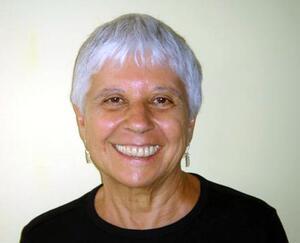Podcast: Rita Arditti on Being Invisible in Argentina
As April comes to a close and as we kick off Jewish American Heritage Month in May, we're featuring an oral history clip of Rita Arditti as our podcast of the month. With her lilting Spanish-accented English, Arditti's voice is striking, as her journey is unique - perhaps one that many of us don't immediately associate with Jewish American heritage.
A Sephardic Jew who grew up in Argentina, a country that is 95% Catholic, Arditti knew what it meant to be a "minority within a minority." Born in 1934 to parents who were Turkish immigrants, Rita was aware even as a young child that, "To be a Sephardic Jew in Argentina is to be invisible" within the Jewish and non-Jewish communities alike.
It was, in part, this awareness of invisibility that helped shape Arditti's immigrant experience in America, and later, the development of her political consciousness as a human rights activist. In the 1980's Rita agreed to translate for a Boston tour of the grandmothers of the Plaza de Mayo. Rita was moved by the women's search for grandchildren who had disappeared under Argentina's military dictatorship from 1976-83. During annual visits to Argentina, Rita decided to write a book about their struggle to find children who might be living under assumed identities. With the publication of Searching for Life: The Grandmothers of the Plaza de Mayo and the Disappeared Children of Argentina, the story of the missing became an international one. The first in depth study of the grandmother's work, Searching for Life helped to publicize a quest that was often fraught with danger. In 2001 the grandmothers were nominated for the Nobel Peace Prize. Rita's book was part of the supporting documentation offered for that nomination.
Listen to Arditti tell her story.








Just listened to the podcast and liked it a lot- I'm currently reading to books on Jewish American heritage and was look for some nice audio and video material. Thanks Lisa Blummen